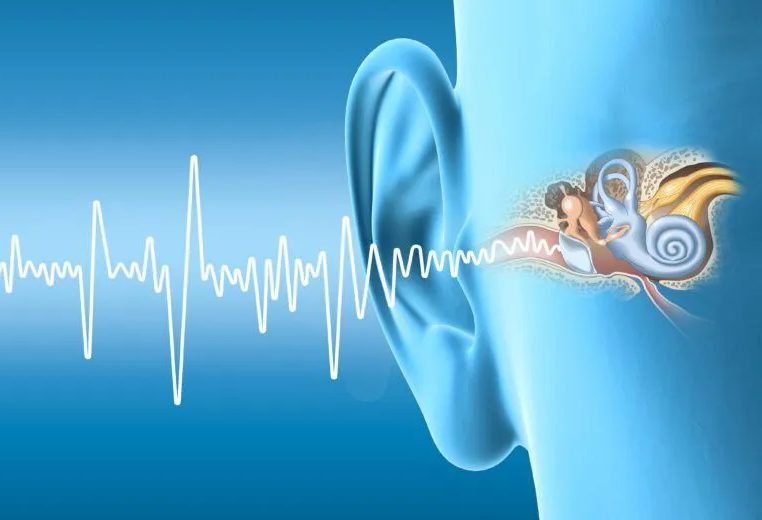Can Hearing Loss Be Prevented?
The older you get, the more likely you are to experience some degree of hearing loss. Over the age of 65, almost one out of every two people has lost some hearing, as have about 25 percent of those between the ages of 55 and 64. In addition to aging, exposure to loud noises can damage hearing, even when you’re young.

However, evidence suggests that it may be possible to prevent – or at least reduce – hearing loss through your diet. A diet rich in beta-carotene, vitamin C and magnesium can help protect against age-related hearing loss, as well as that related to noise exposure.
This association has been observed in a number of animal studies, as well as in the results of a human study conducted by an international team of researchers from South Korea, the U.S. and Canada, published in 2013. The study participants, 2,592 men and women between the ages of 20 and 69 all living in the U.S., had their hearing tested and later were interviewed about what they had eaten in the previous 24 hours. Their self-reported exposure to noise was also factored in.
After assessing the results of the participants’ hearing tests, noise exposure and dietary information, the researchers found that those with higher intakes of beta-carotene, vitamin C and magnesium had better hearing. (Beta-carotene is found in many yellow and orange fruits and vegetables. You can get vitamin C from citrus fruits, and magnesium from green leafy vegetables, legumes, nuts and whole grains.)
The researchers noted that the formation of free radicals in the inner ear is a key factor in hearing loss. The protective effect of antioxidants, such as beta-carotene and vitamin C, may be due to inhibition of free radical formation.
Other research, from Brigham and Women’s Hospital in Boston, found that a healthy diet may help prevent hearing loss in women. It showed that women whose diets were healthiest had a 30 percent lower risk of hearing loss as they aged compared to women whose diets were less healthy.
Specifically, the researchers found that the risk of hearing loss was lowest in women who best adhered to versions of the Mediterranean Diet and the Dietary Approaches to Stop Hypertension (DASH). The investigative team followed 70,966 women in the Nurses’ Health Study II for 22 years and collected dietary information from them every four years.
Hearing loss was self-reported, but the researchers noted that detailed hearing-related information from more than 33,000 of the women suggested that the reduced risk attributable to healthy diets may be even higher than 30 percent.
If you’re eating well, and have been eating well, chances are you have a lower than average risk of experiencing age-related hearing loss.
Can Lost Hearing Be Restored?
Maybe so, according to researchers at Northwestern University, who discovered a master gene that can potentially turn hearing back on for seniors (and others) who have disabling hearing loss.
That’s great news for the 8.5 percent of older adults who are 55 to 64 in the U.S. with compromised hearing, as well as the nearly 25 percent of those aged 65 to 74 and half of those who are 75 or older. Until now, hearing loss due to aging, noise and certain drugs has been irreversible.
Once they are disabled, the “hair” cells essential for hearing don’t regenerate. Ideally, nearby hair cells could be reprogrammed to develop into the sensory hair cells needed for auditory function, and scientists may have found a way to facilitate this process.
They discovered a master gene that programs cells into functioning as inner or outer hair cells for hearing, overcoming what they described as “a major hurdle” that had prevented restoring hearing, the researchers reported.
They noted that the death of outer hair cells made by the cochlea (described as “the snail-shell-shaped organ in the inner ear that converts sound waves into nerve impulses that the brain deciphers”) is most often the cause of hearing loss.
Lead study author Jaime Garcia-Anoveros, Ph.D., professor of anesthesia, neurology, and neuroscience at Northwestern University Feinberg School of Medicine, noted that the contractions of both inner and outer hair cells is “like a ballet. The outers crouch and jump and lift the inners further into the ear.”
The master gene switch Northwestern scientists discovered that programs ear hair cells is called Tbx2. When the gene is expressed during development, the cell becomes an inner hair cell. When the gene is blocked, the cell becomes an outer hair cell. The ability to produce one of these cells will require a gene cocktail, Dr. Garcia-Anoveros said.
Until we know more about the new master gene and how it works, it may be possible to prevent – or at least reduce – hearing loss by following a diet rich in beta-carotene, vitamin C and magnesium.
Author: Andrew Weil, M.D.
Sources:
Sung Kyun Park et al, “Antioxidant vitamins and magnesium and the risk of hearing loss in the US general population,” American Journal of Clinical Nutrition, January 2014, doi:10.3945/ajcn.113.068437
Sharon G. Curhan et al, “Adherence of Healthful Dietary Patterns Is Associated with Lower Risk of Hearing Loss in Women.” The Journal of Nutrition, May 11, 2018, doi.org/10.1093/jn/nxy05
Jaime García-Añoveros, John C. Clancy, Chuan Zhi Foo, Ignacio García-Gómez, Yingjie Zhou, Kazuaki Homma, Mary Ann Cheatham, Anne Duggan. “Tbx2 is a master regulator of inner versus outer hair cell differentiation.” Nature, 2022; DOI: 10.1038/s41586-022-04668-3”
yogaesoteric
July 2, 2024
